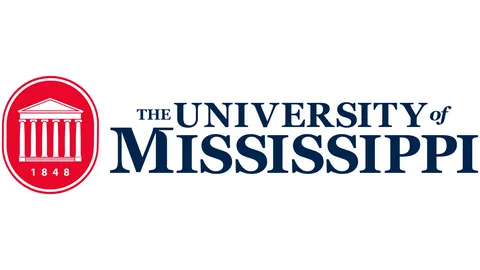Introduction
The cost of higher education can be a significant barrier for many students, especially those who come from low-income backgrounds. While merit-based scholarships recognize academic excellence, need-based scholarships focus on providing financial aid to students who demonstrate a genuine need for support. These scholarships can make the dream of obtaining a college degree a reality for students who may otherwise struggle to afford tuition, housing, and other educational expenses. In this comprehensive guide, we will explore what need-based scholarships are, how they work, and how you can increase your chances of securing them. Whether you’re a prospective student or a parent, this article will help you make well-informed decisions about applying for financial aid.
1. Understanding Need-Based Scholarships
1.1 What Are Need-Based Scholarships?
Need-based scholarships are financial awards given to students who have demonstrated a financial need. Unlike merit-based scholarships, which are awarded based on academic achievements, need-based scholarships assess a student’s financial circumstances, taking into account factors such as family income, assets, and the cost of attending college. The aim is to provide equitable access to education by ensuring that financial limitations do not hinder talented students from achieving their academic goals.
1.2 How Need is Determined
To determine a student’s financial need, most institutions use a formula that subtracts the expected family contribution (EFC) from the total cost of attendance (COA).
- Cost of Attendance (COA): The total estimated cost to attend a college, including tuition, fees, room and board, books, supplies, and personal expenses.
- Expected Family Contribution (EFC): The amount of money that the student’s family is expected to contribute towards education, calculated based on income, assets, and other financial factors.
The difference between the COA and EFC is the amount of financial need, which forms the basis for determining the amount of aid a student may receive.
2. Types of Need-Based Scholarships
2.1 Federal Need-Based Scholarships
The U.S. government offers several need-based financial aid programs for students. These include:
- Pell Grants: The most common federal need-based grant, awarded to undergraduate students with exceptional financial need. The amount varies depending on the student’s EFC and the COA of their chosen institution.
- Federal Supplemental Educational Opportunity Grant (FSEOG): For students with significant financial need, available at participating schools. Priority is given to Pell Grant recipients.
- Work-Study Programs: Although not strictly a scholarship, work-study programs provide part-time employment opportunities to students with financial need, allowing them to earn money to cover educational expenses.
2.2 Institutional Need-Based Scholarships
Many colleges and universities offer their own need-based scholarships. These awards are funded by the institution and may have specific criteria that vary from school to school. For example, Ivy League institutions like Harvard and Yale offer generous need-based scholarships, sometimes covering the full cost of attendance for students from low-income families.
2.3 Private Need-Based Scholarships
Private organizations, non-profits, and corporations also offer need-based scholarships. Examples include the Jack Kent Cooke Foundation Scholarship and the Horatio Alger Association Scholarship. Each of these scholarships has its own eligibility requirements, but all focus on supporting students who need financial assistance to pursue higher education.
3. Eligibility Criteria for Need-Based Scholarships
3.1 Financial Documentation
To apply for need-based scholarships, students must submit detailed financial information, typically through forms like the Free Application for Federal Student Aid (FAFSA) in the U.S. or the CSS Profile for certain private institutions. These forms require details on family income, assets, tax returns, and other financial data.
3.2 Academic Requirements
While need-based scholarships primarily consider financial need, some programs may still have academic requirements. Students may need to maintain a minimum GPA or demonstrate satisfactory academic progress to remain eligible for continued funding.
3.3 Citizenship or Residency Status
Certain need-based scholarships may have restrictions based on citizenship or residency. For example, U.S. federal grants are typically only available to U.S. citizens or eligible non-citizens. However, private and institutional scholarships may have more flexible criteria.
4. How to Apply for Need-Based Scholarships
4.1 Completing the FAFSA
The FAFSA is the primary tool for applying for federal need-based aid in the U.S. Completing the FAFSA is a critical step, as it determines eligibility for federal grants, work-study, and some institutional aid. The form can be completed online and should be submitted as soon as possible after it becomes available each year (typically in October).
4.2 Submitting the CSS Profile
The CSS Profile is used by many private colleges to assess eligibility for institutional need-based scholarships. Unlike the FAFSA, which is free, the CSS Profile has a fee, though fee waivers are available for students with demonstrated financial need. The CSS Profile collects more detailed financial information than the FAFSA, so it’s essential to gather all necessary documents before starting the application.
4.3 Preparing Additional Documentation
Some need-based scholarships may require additional forms or essays. It is crucial to carefully read the application requirements for each scholarship and prepare any supplementary materials, such as recommendation letters, personal statements, or academic transcripts.
5. Tips for Maximizing Need-Based Scholarship Opportunities
5.1 Apply Early
Many scholarships and grants have limited funds, and applying early can improve your chances of receiving aid. Be aware of deadlines and set reminders to ensure that you submit your applications on time.
5.2 Be Honest and Accurate
When filling out financial aid forms, it is essential to provide accurate information. Misrepresenting your financial situation can lead to delays, loss of aid, or even legal consequences. If your family’s financial situation changes, such as through job loss or unexpected medical expenses, notify your school’s financial aid office to see if adjustments can be made.
5.3 Consider a Range of Schools
Need-based aid packages can vary significantly between institutions. Research schools that are known for generous financial aid and consider applying to a range of colleges, including private universities, which may have more resources for need-based scholarships.
6. Common Myths About Need-Based Scholarships
6.1 “Only Low-Income Students Qualify”
While need-based scholarships prioritize students with financial need, families with moderate incomes can also qualify for aid, especially if they have multiple children in college. The EFC calculation takes several factors into account, so it is worth applying even if you do not think you will qualify.
6.2 “Merit Doesn’t Matter for Need-Based Scholarships”
Though financial need is the primary criterion, some need-based scholarships may still consider academic performance. A strong academic record can sometimes improve the amount of aid awarded.
6.3 “Private Schools Are Too Expensive, Even with Aid”
Private colleges may have higher sticker prices, but they often offer more generous need-based financial aid packages. Many students find that attending a private school can be just as affordable, if not more so, than a public institution once scholarships and grants are factored in.
7. Real-Life Examples of Need-Based Scholarships
7.1 The Gates Scholarship
The Gates Scholarship is a highly selective, full-ride scholarship for outstanding, Pell-eligible, minority high school seniors. It covers the full cost of attendance, including tuition, fees, room, board, books, and transportation.
7.2 The Posse Scholarship
The Posse Foundation partners with select colleges to provide full-tuition scholarships to students with exceptional leadership potential who may not fit traditional merit-based scholarship profiles but demonstrate financial need.
7.3 QuestBridge National College Match
QuestBridge connects high-achieving, low-income students with full scholarships to top colleges and universities. Students who are selected for the College Match program receive full four-year scholarships, including room and board.
8. Conclusion
Need-based scholarships play an essential role in making higher education accessible to students from all economic backgrounds. By understanding how these scholarships work, where to find them, and how to apply effectively, you can make informed decisions that bring you closer to achieving your academic dreams. Remember, the key to success is preparation, honesty, and persistence. Begin your scholarship search early, complete all necessary forms accurately, and explore every opportunity available to maximize your financial aid. With the right approach, you can overcome financial barriers and focus on excelling in your education.





